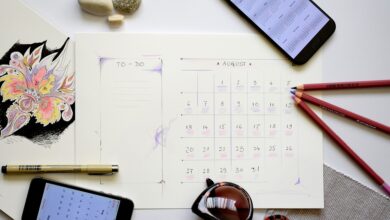
In today’s fast-paced world, achieving a work-life balance can be a daunting task. With the demands of work constantly increasing, many individuals find themselves struggling to find time for personal pursuits and relaxation. This imbalance can lead to burnout, a state of physical, emotional, and mental exhaustion that can have serious consequences on one’s health and wellbeing. This article will explore the importance of striking a work-life balance and the role that planners can play in preventing burnout.
Work-life balance refers to the equilibrium between the time and effort spent on work and personal activities. Achieving a healthy work-life balance is essential for overall wellbeing and happiness. When individuals are able to effectively manage their time and priorities, they are better equipped to handle the demands of work and enjoy a fulfilling personal life. On the other hand, when work takes over and consumes all aspects of life, it can lead to burnout, a state of overwhelming stress and exhaustion that can have long-lasting effects on physical and mental health.
Burnout is a common phenomenon in today’s society, with many individuals experiencing symptoms such as fatigue, irritability, and a lack of motivation. Burnout can also lead to more serious health issues, such as depression, anxiety, and even heart disease. In order to prevent burnout, it is important to take proactive steps to achieve a healthy work-life balance.
One of the key ways to prevent burnout and achieve a work-life balance is through effective planning. Planners play a crucial role in helping individuals organise their time, set priorities, and create a schedule that allows for both work and personal activities. By taking a proactive approach to time management, individuals can ensure that they are not overwhelmed by work and are able to make time for relaxation, hobbies, and social activities.
Effective planning involves setting clear goals and priorities, delegating tasks when necessary, and creating a realistic schedule that allows for both work and personal time. Planners can help individuals identify their most important tasks and allocate time and resources accordingly. By breaking down tasks into manageable chunks and setting deadlines, individuals can stay on track and avoid feeling overwhelmed by the demands of work.
In addition to helping with time management, planners can also assist individuals in creating boundaries between work and personal life. With the rise of technology, it has become increasingly difficult to disconnect from work, leading to a blurring of the lines between work and personal time. Planners can help individuals set limits on their work hours, establish a routine for disconnecting from work, and create a space at home that is dedicated to relaxation and leisure.
Furthermore, planners can also help individuals identify their personal values and priorities, and set goals that align with these values. By understanding what is truly important to them, individuals can make better decisions about how to spend their time and energy, and avoid getting caught up in the endless cycle of work and stress.
Another important aspect of achieving a work-life balance is self-care. Planners can help individuals integrate self-care practices into their daily routine, such as exercise, mindfulness, and relaxation techniques. By making time for self-care, individuals can recharge their energy levels, reduce stress, and improve their overall wellbeing.
Finally, planners can play a role in helping individuals foster strong social connections and support networks. Maintaining strong relationships with friends, family, and colleagues is essential for mental and emotional wellbeing. Planners can help individuals schedule time for social activities, hobbies, and other leisure pursuits that bring them joy and fulfilment.
In conclusion, achieving a work-life balance is essential for preventing burnout and maintaining overall wellbeing. Planners play a crucial role in helping individuals manage their time, set priorities, and create a schedule that allows for both work and personal activities. By taking a proactive approach to time management, setting boundaries between work and personal life, integrating self-care practices, and fostering strong social connections, individuals can achieve a healthy work-life balance and avoid the pitfalls of burnout. Remember, life is a marathon, not a sprint – take the time to recharge and enjoy the journey.





